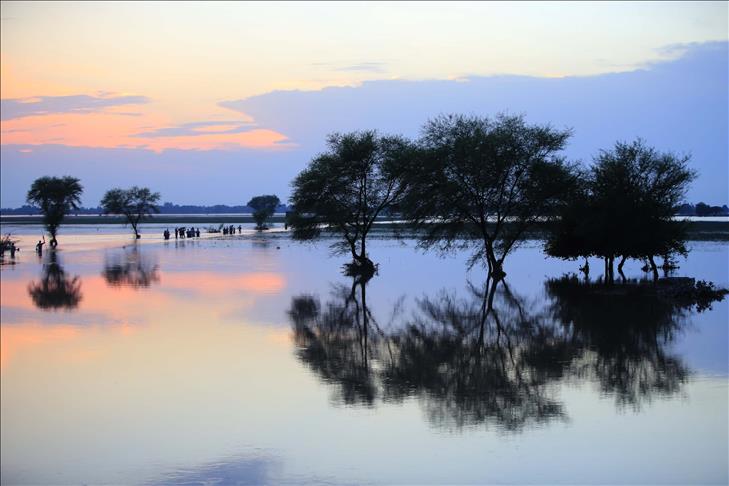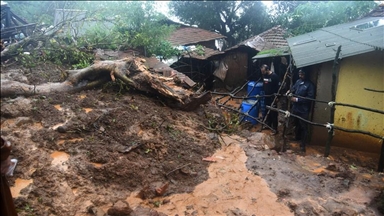
By Shuriah Niazi
BHOPAL, India
A month of Ramadan fasting began for Muslims around the world last week but for many Muslims in India, it is a lack of rain, not food, that concerns them.
India's Meteorological Department has predicted that monsoon rains would be below average this year, a worry for those hoping for relief from hot and humid summer weather, as well as farmers who rely on the yearly rains for their crops.
Though an earlier heatwave that killed more than 2,500 people has abated, the continuing hot weather still poses a challenge for Muslims going without water during the day.
"We have not seen this kind of heat in decades. We observe dawn to dusk fasts; timings are quite long and hot and humid conditions are making things unbearable for us. We are praying to Allah for rains," said Rafat Alam, a devout Muslim from northern India, who says the first few days of Ramadan have been a struggle.
Alam's desires could soon be realized, with weather experts saying that the monsoon might not be completely deficient after parts of the country saw strong rains in June.
"The monsoon is moving to the central and north-western area. Major parts of north-western India may receive pre-monsoon showers soon," said LS Rathore, the director general of the Indian Meteorological Department.
Earlier predictions of a lackluster rainy season this year had worried farmers, especially as in most parts of India, farmers are already in dire straits following successive crop failures due to natural disasters. The previous spring harvest was spoiled in most parts of India by unseasonal rains and hailstorms.
Iqbal Ahmed, a Muslim farmer in central India said that during Ramadan, he is reserving special prayers for a good monsoon.
"For farmers, everything depends on monsoon. Good monsoon would mean better productivity from farms and also for the economy. We will celebrate Eid in a better way if we get adequate rains for our farms," added Ahmed, noting the end of Ramadan festival celebrated by Muslims.
Another Muslim farmer, Ishaq Hasan, also has his eyes and prayers set on the monsoon. Pleased by the amount of rain in central India so far, he is hoping for it to last through the season for a much-needed strong harvest.
"Definitely what a farmer will ask for during this Ramadan season, apart from forgiveness, is for copious rains. We are bit fearful after the meteorological department raised apprehensions about a good monsoon, but still hope the almighty will be kind," he added.
Almost 70 percent of the Indian agricultural sector depends on monsoon rains and a bad monsoon could lead to inflation and another round of suicides by farmers, an extreme option exercised by hundreds of farmers every year because of crippling debt.
The debt-ridden farmers are now hoping a successful monsoon crop will help repay their loans and meet their living costs but are also terrified by the prospect of another failed crop.
Other Muslims have said that the prices of essential goods, like fruit, vegetables and milk, have already risen to almost unaffordable prices in Ramadan.
Shabad Zafar, a Muslim housewife in Lucknow, the capital of the northern Indian state of Uttar Pradesh, said she expects the prices to calm down after Eid.
"The prices have really hit the roof during this season. We know consumption increases during this month and sellers try to exploit the situation and earn maximum profit. We have no option but to purchase despite the high cost," she said.
Muslims traditionally break their daylong fast with dates but even they have become costlier, by almost 20 percent, while other fruit and vegetables have become 25 percent more expensive.
Sadiq Khan, a seller in the central Indian city of Bhopal, said the feeling is that no one can stop the inflation and that, despite the price rises, his profit has shrunk over the years.
"Even we don’t want to hike prices during this holy month but we cannot help it. With supply shortage and the hike in demand, everything has gone beyond the reach of common people," said Khan.
Anadolu Agency website contains only a portion of the news stories offered to subscribers in the AA News Broadcasting System (HAS), and in summarized form. Please contact us for subscription options.







